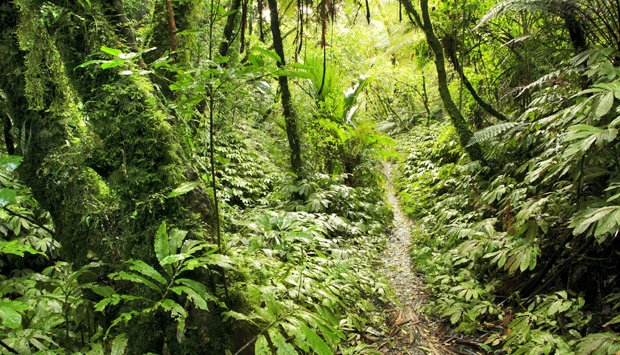
TEMPO.CO, Jakarta - A farmer from the Sakai tribe in Bengkalis has been jailed for cutting down trees on land owned by a company. This is an offense against justice.
THE verdict by the Bengkalis District Court in Riau that jailed Bongku bin Jelodan is an offense against justice. Simply for cutting down trees in a forest owned by Arara Abadi, the 58-year-old farmer was jailed for one year. Conversely, in the last five years this court has many times freed people who burned forests, including companies. The sentence for Bongku may well strengthen the view that law enforcement in this country is sharp at the bottom and blunt at the top.
The verdict on Bongku was handed down by a judges panel led by Hendah Karmila Dewi with members Aulia Fhatma Widhola and Zia Ul Jannah Idris on May 18. The judges sentenced the member of the Sakai tribe from Suluk Bongkal village, Bengkalis, to one year in jail and fined him Rp200 million. The judges ruled that he was guilty of felling a tree in a forest without permission from the relevant authorities. The judges based their verdict on the evidence of two felled eucalyptus trees.
This verdict shows the huge distance between the law and justice for ordinary people like Bongku. The panel of judges upheld the law in a way that was inflexible, arrogant and by the strict letter of the law. In its decision, the judges even gave the impression of ignoring statements from witnesses and experts that would have reduced the severity of the charges. The verdict was also ironic because the evidence presented in the case was only two felled eucalyptus trees, which was not in line with the prosecution charges that Bongku cut down 200 eucalyptus and acacia trees on the concession owned by Arara Abadi.
The panel of judges also seemed reluctant to examine the problem as a whole and examine the case carefully. They paid no attention to the reason why Bongku cut down the tree, which was to clear land so that he could plant the edible tubers that are the staple food of the Sakai people, who have long lived in and around the forest. There was no desire to damage the forest. Bongku viewed the area as communal customary land. It is regrettable that the judges ignored the traditional status of the land, paying more attention to formal considerations than the fact that Bongku’s people had lived on it for generations.
The judges were also wrong to use Law No. 18/2003 on deforestation prevention and eradication in their verdict. Bongku is a member of the Sakai people, who are not subject to this law. In the general elucidation of the law, it is clearly stated that the subjects of this law are members of organizations and corporations who are damaging the forests. The court found that Banco had cut down the tree himself, not as a member of a syndicate.
There was injustice from the outset. The police were very swift in their investigation of the case. Only a day after the police received a report from Arara Abadi, they named a suspect and then detained Bongku. This was very different to the police response to dozens of reports filed by the Riau branch of the Indonesian Forum for the Environment (Walhi) since 2015 of alleged burning of the forest by corporations. A number of investigations have already been halted, while the rest remain unexplained. Prosecutors had the right to reject the Bongku case because it should not have been continued, but they decided to take it to court with the eventual result that Bongku was found guilty by the judges.
There are still ways that Bongku can obtain justice. The court verdict could be corrected by an appeal all the way to the Supreme Court. The Judicial Commission and the Supreme Court Supervisory Board must not stand by in the face of this injustice. The two agencies must question the judges about their mistaken and misplaced verdict.
Read the Complete Story in this Week's Edition of Tempo English Magazine























